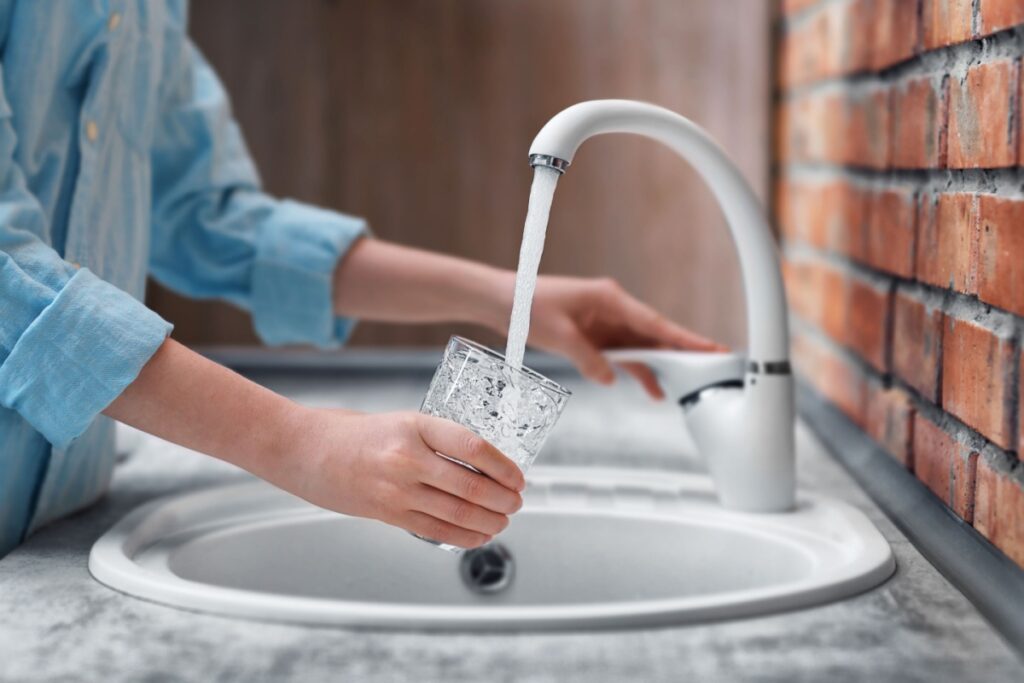You turn on the tap, fill up a glass, and take a sip – like you often do. But have you ever stopped to wonder… is this water actually safe to drink?
We’d all like to believe our water is clean, but the truth is that contaminants can sneak in from aging pipes, industrial runoff, and even the treatment process itself. And the worst part? You might not even be able to see, smell, or taste the problem.
The Jackson, Mississippi, area has dealt with boil notices, corroded pipes, and harmful bacteria, making clean drinking water a serious concern for residents. Our team at Environment Masters has helped countless homeowners rest easier by knowing their water is safe.
So, how can you know for sure that your home’s water is safe? This guide will help you know:
- What could be lurking in your water
- Signs that something might be off
- How to check your water quality
- What you can do to make sure your water is clean
What Could Be in Your Water?
Just because your water looks clear doesn’t mean it’s clean. Here are some common contaminants that could be flowing through your pipes:
1. Bacteria & Viruses
It turns out that the upset stomach you had that night may not have been caused by bad takeout but by bacteria from your tap water. These little troublemakers can cause stomach problems, diarrhea, and other nasty illnesses. Bacteria are more common in untreated well water or areas with aging water systems.
2. Lead & Heavy Metals
These come from old pipes and can be especially harmful to kids. Jackson, Mississippi’s water system has dealt with lead contamination, putting many families at risk. There’s no safe level of lead exposure—it can lead to developmental issues and other health problems. If you live in an older home, it’s worth getting your water tested.
3. Chlorine & Disinfection Byproducts
Many cities, including Jackson, use heavy chlorination to kill bacteria. While it helps keep water “safe,” too much chlorine isn’t great for your health or taste buds.
This disinfection process can leave behind chemicals that are harmful over time. And no one wants to feel like they’re drinking water from a public pool!
4. Hard Water Minerals (Calcium & Magnesium)
They’re not dangerous but can clog your pipes, ruin appliances, and leave spots on your dishes.
They can also make your hair and skin feel dry.
5. Pesticides & Herbicides
These chemicals can seep into groundwater from farms and gardens.
They’re more common in rural areas but can still make their way into city water. So, even if you’re buying organic produce, you could still be unknowingly drinking water with traces of pesticides.
6. Microplastics & Chemical Pollutants
Plastics, pharmaceuticals, and industrial waste can sneak into the water supply.
Long-term exposure has been linked to various health concerns.
Signs Your Water Might Not Be Safe
Sometimes, water contamination is obvious. Other times, it’s harder to spot. Residents of Lake Caroline, Mississippi, have complained of slimy sediment in their water, and some have noticed discoloration in their laundry. Here are some red flags to watch for and what they might mean:
Strange Taste or Smell
- Rotten egg smell – Sulfur or bacteria.
- Metallic taste – Lead or iron.
- Strong chlorine taste – Too many disinfectants.
Cloudy or Discolored Water
- Brown or red water – Rust from old pipes.
- Greenish tint – Possible copper contamination.
- White floating bits – Hard water minerals.
Recurring Plumbing Issues
- Hard water buildup on faucets and appliances.
- Corroded pipes that need frequent repairs.
Skin or Hair Issues
- Dry, itchy skin and brittle hair can be caused by excess chlorine or minerals.
Frequent Stomach Problems
- Contaminated water might be to blame if your household is dealing with ongoing digestive issues.
How to Check Your Water Quality
So how can you know for sure what’s in your water? Here’s what to do:
1. Check Your Local Water Report
Public water suppliers are required to publish annual reports on water quality.
Find your city’s water report here: EPA Water Quality Search
If you live in Central Mississippi or a city with known water problems, checking this regularly is a must.
2. Use a Home Water Testing Kit
You can find these at most hardware stores. They test for chlorine, lead, bacteria, and more.
3. Get a Professional Water Test
For the most accurate results, hire a professional. This is especially important if you have well water. Our team at Environment Masters will happily help you with this– just give us a call.
How to Make Sure Your Water is Safe
If you’ve tested and your water quality isn’t great, don’t panic – there are solutions. Here are a few that we have found can help make your water safer.
Point-of-Use Filters (For Drinking Water)
- Attaches to your kitchen faucet or fridge.
- Filters out chlorine, lead, and heavy metals.
Whole-Home Filtration Systems (For Every Tap in Your Home)
- Removes sediment, chlorine, and other contaminants.
- Protects your plumbing and appliances.
Reverse Osmosis Systems (For the Ultimate Purification)
- Removes 99% of contaminants, including bacteria and microplastics.
UV Purifiers (For Bacteria & Viruses)
- Uses ultraviolet light to kill harmful microbes.
Is Your Water Safe?
Clean water isn’t just about taste—it’s about your health. Whether your water smells off, leaves stains, or causes stomach issues, it’s worth investigating.
If you live in Jackson, Mississippi, or another area with ongoing water concerns, it’s even more important to take control of your water quality.
Our skilled technicians can identify any contaminants in your water and provide custom filtration solutions if needed. Call (601) 300-2564 to schedule your professional water test.
Cleaner, safer water and peace of mind are just a click away.

